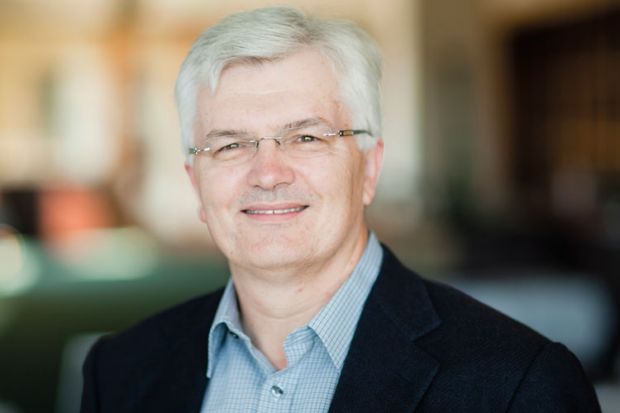Glyn Davis is vice-chancellor at the University of Melbourne. He has run the institution for a decade and seen it rise to 33 in the most recent Times Higher Education World University Rankings, making it the highest-ranked Australian university. He has also chaired Universities Australia, the representative body of public and private higher education institutions across the nation, and Universitas 21, a global network of leading international universities. From 30 September to 2 October 2015, Melbourne will host the THE World Academic Summit, at which Professor Davis is a keynote speaker.
Where and when were you born?
In Sydney, in the winter of 1959.
How has this shaped you?
Well, it was cold…We are all shaped by the places where we start, but spend the rest of our lives on a long journey. Despite what T. S. Eliot wrote, we don’t arrive where we started and know it for the first time.
What is the significance for Melbourne in hosting the THE World Academic Summit?
This conference reflects how global rankings now reach every corner of the world, and it positions Australia as part of that global conversation.
Do you think that Melbourne could break into the top 10 of the THE World University Rankings or even be the top-ranked institution?
We’re proud to be a globally ranked university and we continue to work hard to do well with the resources available to us. Given the astonishing endowment available to many US institutions, competing in the top 10 would be a challenging proposition.
How much importance do vice-chancellors place on rankings?
Just as all politicians say that they never worry about the polls…
Where do you see Australia in terms of global higher education?
The Universitas 21 rankings out earlier this year suggest that Australia consistently enjoys a high-quality higher education system. The policy challenge we face is to keep it that way.
Asia is emerging as the next HE superpower. What will you and fellow v-cs be doing to compete?
The trend among Australian universities is to develop close collaboration on research and curricula with Asian partners. This shift will only accelerate.
What has changed most in HE in the past 10 years?
For 25 years people have been predicting that online education will wipe out conventional universities. Suddenly, there are millions of people studying online, and yet the demand for a campus education continues. The future is multichannel.
What is the biggest challenge facing academic leaders?
Accepting that universities are now part of a wider network of communities, precincts, industry and pluralities, and learning how to behave well as a node, not an autonomous little kingdom.
Have you had a eureka moment?
There was one brief, shining moment when it all made sense. It soon passed.
What is a degree worth?
Thirty-five years on, I’m still thinking about issues that I first encountered as an arts student. A good degree opens the world.
What kind of undergraduate were you?
Interested, and at times overwhelmed. But primarily, I was deeply grateful for the opportunity to go to university as I was the first person in my family to do so.
What was your most memorable university moment?
Meeting the vice-chancellor as a student representative and wondering why anyone would want to do his job.
What keeps you awake at night?
Students singing on their way home after the pubs close.
What advice would you give to your younger self?
It’s a long road, there’s no need to rush.
Tell us about someone you admire.
I’ve always admired the scholars who are passionate about teaching and research, and happily make this their life’s purpose.
What are the best and worst things about your job?
My favourite moment on campus is the first day of the first semester, watching thousands of excited young students experiencing university and dreaming about the future.
Do you have a prediction for the Ashes?
Australia, obviously. And wouldn’t it be great to see Melbourne University Cricket Club alumnus Fawad Ahmed in the Australian team too?
The 2015 THE World Academic Summit will take place at the University of Melbourne in September.
后记
Article originally published as: HE & me (2 July 2015)
